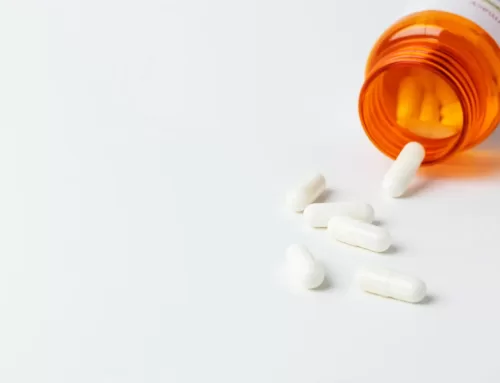
How Drug Treatment Centers Near Me Address Nightlife Triggers for Relapse
Nightlife environments—buzzing clubs, crowded bars, and late-night parties—pose significant relapse risks for those in recovery. Sensory cues, social pressures, and emotional triggers can reignite cravings, making sustained sobriety challenging. This guide explains how nearby drug treatment centers, including Embark Recovery, design relapse prevention programs that teach coping skills, strengthen social support, and address mental health conditions.
What Are Nightlife Triggers and Why Do They Increase Relapse Risk?
Nightlife triggers are external or internal cues—like music, peer pressure, or emotional stress—that activate cravings by reawakening past associations with substance use. These cues stimulate the brain’s reward pathways, making relapse more likely. Treatment centers help patients map their unique trigger profile and learn healthier responses that reduce risk in nightlife settings.
Common Environmental and Social Cues in Nightlife Settings
Bars, clubs, or décor reminiscent of past substance use – Returning to familiar venues with flashing lights, neon décor, or crowded dance floors can unconsciously trigger cravings because they resemble environments where drinking or drug use previously occurred.
Friends or peers offering alcohol or drugs – Peer pressure, whether subtle or direct, can make it harder for individuals in recovery to say no, especially when surrounded by others who normalize substance use.
Music tied to previous drinking or drug experiences – Certain genres, playlists, or even specific songs can reactivate powerful memories of substance use, instantly sparking cravings.
Easy access to substances at events – When alcohol or drugs are readily available, the temptation is heightened, making relapse more likely without a clear prevention strategy in place.
Emotional Triggers That Fuel Nightlife Relapse
Anxiety about fitting in socially – Many people feel pressure to use substances to appear more relaxed or confident in social situations, especially in nightlife settings.
Loneliness or boredom – Nightlife often promises quick relief from feelings of isolation, making it appealing to those who are struggling emotionally during recovery.
Stress from work or relationships – High stress levels can push individuals toward unhealthy coping mechanisms like drinking or using drugs as a form of escape.
Memories of celebration tied to substances – Past rituals of partying, birthdays, or other milestones that involved alcohol or drugs can resurface, creating emotional cravings.
How Do Drug Treatment Centers Create Personalized Relapse Prevention Plans?
Each patient undergoes a full assessment to identify risk factors. Clinicians then design a relapse prevention plan that may include:
Cognitive Behavioral Therapy (CBT) for thought and behavior changes
Dialectical Behavior Therapy (DBT) for emotional regulation
Trauma-informed care to reduce vulnerability linked to past trauma
Group therapy and peer accountability sessions
This individualized approach ensures strategies match real-world social challenges.

Coping Skills for Nightlife Triggers
Mindfulness & Stress Management
Breathing exercises to stay calm in crowded spaces – Focused breathing slows the heart rate, reduces anxiety, and helps create a moment of pause before reacting to cravings.
Body scans and progressive relaxation before social events – Scanning the body for tension and releasing stress can prepare individuals mentally and physically before entering high-risk settings.
Escape Plans & Sober Buddy Systems
Pre-arranged exit strategies if cravings intensify – Having a plan to leave an event quickly, whether by ride-share or a trusted contact, reduces the risk of staying in unsafe environments.
Accountability through a sober companion or check-in system – A sober buddy can provide real-time encouragement and immediate support, preventing triggers from escalating.
Assertiveness Training
Practicing refusal skills in group sessions – Role-playing scenarios helps individuals prepare for real-life peer pressure situations where they may need to say “no.”
Using direct but respectful communication to decline substances – Learning how to firmly refuse without feeling guilty or confrontational helps maintain boundaries while preserving social relationships.
Building a Sober Social Life After Rehab
Joining recovery meetups, volunteer programs, or sober sports leagues – These activities create new opportunities for connection while reinforcing a lifestyle centered around healthy, substance-free activities.
Exploring hobbies such as art, music, or fitness in alcohol-free settings – Creative or physical outlets provide a natural high that replaces the rush once tied to nightlife or substance use.
Connecting with peer support networks like 12-step groups or SMART Recovery – Structured support groups offer accountability, guidance, and friendship, helping individuals avoid isolation and build sober routines.
Aftercare and Long-Term Support for Nightlife Resilience
Intensive Outpatient Programs (IOP) & PHP – These step-down programs allow people to balance daily life with continued therapy, making it easier to practice skills in real-world environments while staying connected to professional support.
Sober Living Environments – Shared homes with curfews, house rules, and peer accountability help individuals maintain structure and discipline during early recovery.
Ongoing Counseling & Support Groups – Continued one-on-one therapy and group sessions provide safe spaces to process challenges and adjust relapse prevention strategies as social pressures evolve.
Vocational Training & Education – Building career skills and pursuing education gives individuals purpose and stability, reducing idle time that might otherwise lead to relapse temptations.

Addressing Dual Diagnosis and Mental Health in Nightlife Triggers
Co-occurring conditions like anxiety and depression often magnify relapse risk in nightlife settings. Integrated treatment provides:
Psychiatric support alongside addiction therapy – Ensures that both mental health and substance use are treated together for stronger outcomes.
Medication management – May include FDA-approved addiction treatments (like naltrexone) combined with antidepressants or anti-anxiety medications to stabilize symptoms.
Psychoeducation – Helps patients understand how mental health symptoms interact with triggers and relapse patterns in social environments.
Final Thoughts: Turning High-Risk Nights into Recovery Wins
Recovery doesn’t end after rehab—it requires ongoing vigilance, especially in social settings. With the help of nearby drug treatment centers, individuals can transform nightlife challenges into opportunities for growth. Through personalized relapse prevention, evidence-based therapies, coping skills, aftercare, and dual diagnosis support, patients can confidently protect their sobriety while embracing fulfilling, substance-free social lives.
Nightlife doesn’t have to put your sobriety at risk. At Embark Recovery, our specialized relapse prevention programs are designed to help you recognize triggers, build confidence in social settings, and protect your long-term recovery. From personalized therapy to aftercare support, our team is here to guide you every step of the way.
Call Embark Recovery today to schedule your consultation and start building lasting resilience.
Recent
- Social Isolation and Addiction Treatment: How Prescott Rehab Helps Residents Reconnect
- From Prescription Painkillers to Fentanyl: Why People Turn to Rehab Centers Chandler for Help
- How Drug Treatment Centers Near Me Address Nightlife Triggers for Relapse
- How Peer Pressure Shapes Early Drug Habits and How Outpatient Recovery Curbs Teen Substance Abuse
- The Ultimate Guide to Choosing the Right Drug Rehabilitation Center in Prescott, AZ







